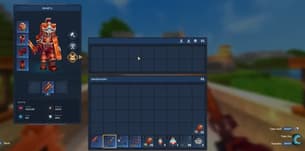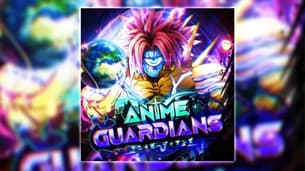
How Game Developers Are Monetizing Player Engagement in 2025

Game developers in 2025 are focused on more than just building compelling gameplay. They’re building systems that turn long-term player interest into sustainable revenue. Instead of relying on one-time sales, studios now create ongoing experiences that encourage players to return, interact, and spend over time.
This shift toward engagement-based monetization has changed how games are made, marketed, and maintained. From cosmetic marketplaces to player-driven economies, developers are applying new methods to keep players active, and make that activity profitable.
Battle Passes as a Core Progression Tool
The battle pass model has matured into a standard progression system across many online games. Players earn cosmetic rewards by completing challenges, ranking up through tiers over a set period.
Unlike traditional downloadable content (DLC) or loot boxes, battle passes tie spending directly to time spent in the game. This design encourages consistent play without unbalancing gameplay. Players are incentivized to log in regularly to maximize value, while developers gain recurring income tied to engagement metrics.
As of 2025, most multiplayer games, including shooters, MOBAs, and even some strategy titles, use some form of a seasonal pass.
Cosmetic Stores and Rotating Inventories
Cosmetics remain a major source of revenue. Skins, emotes, and visual effects let players personalize their characters without affecting performance. What’s changed is how these items are delivered.
Randomized loot boxes have largely been phased out in favor of rotating item shops and curated bundles. This shift gives players more control over their purchases and helps developers avoid regulatory complications in regions that equate loot boxes with gambling.
Players can preview upcoming items, set notifications, or vote on future releases. The result is a more transparent system that still drives spending through limited-time availability and themed drops.
Gambling-Adjacent Features and Competitive Wagering
As esports and competitive gaming have grown, so has the ecosystem around them. Viewership, stats tracking, and prediction-based gameplay now form a secondary layer of interaction for fans and players alike.
One area of interest is the rise of betting platforms that align with the style and pacing of modern games. These platforms offer prediction-based wagers on match outcomes, player performance, or in-game events, using formats that mirror familiar game mechanics. Many players engage with this ecosystem casually, using virtual or real currencies tied to regulated systems.
Some platforms combine traditional casino-style offerings with features designed to appeal to competitive gaming audiences. Turn-based strategy games, real-time predictions, and skill-based wagers have become more common. Sites that support these experiences, like Cafe Casino, have refined their interfaces to feel intuitive for players who already understand in-game progression and risk-reward systems.
These gambling-adjacent systems do not directly integrate with games but thrive in the broader ecosystem. Developers, in turn, have adapted their spectator modes, stat summaries, and tournament structures to support this growing interest.
Community Marketplaces and Player Ownership
Many games now support player-to-player trading or selling of digital items. Titles that once limited cosmetics to in-game use are opening marketplaces where users can sell high-value skins, collectibles, or mods.
These platforms often take a small transaction fee, providing developers with a passive income stream tied to user activity. Some studios also allow limited creator monetization letting players build and sell their own cosmetic packs or maps within approved systems.
This creates a circular economy: players invest in the game, trade within its ecosystem, and see real or perceived value in their items, which drives deeper engagement.
Sponsored Content and Branded Events
Brand collaborations in games are no longer limited to cosmetic skins or simple product placements. Developers now design full events around partnerships, integrating real-world brands into themed challenges, limited-time modes, or even narrative elements.
A similar approach appears in online casino spaces, where game design draws on popular entertainment properties to create familiar, engaging experiences. One example is a collection of fictional-themed games featured at Cafe Casino, which includes slot and card games inspired by TV, movies, and genre tropes. These titles use recognizable characters, settings, and visual styles to connect with fans who already enjoy those fictional universes.
This crossover mirrors what game studios are doing with in-game promotions—bringing external stories into interactive environments. It shows how shared cultural references can serve both gameplay and monetization, whether in a console title or a casino lobby. For developers and platforms alike, thematic alignment helps deepen immersion and broaden appeal.
Creator Programs and Revenue Sharing
Many games now support player creators — not just as modders, but as revenue-generating contributors. Studios provide design tools, monetization paths, and official storefronts where players can sell custom maps, skins, or narrative experiences.
This model started with open-world builders like Roblox and Minecraft, but it’s expanded. In 2025, even competitive multiplayer titles now feature sandbox modes where creators can monetize their work.
Revenue sharing benefits both developers and players. It adds content at low production cost and builds loyalty among creators who feel invested in the game’s success.
Player engagement is now at the center of how games generate revenue. Developers are no longer focused solely on one-time purchases. They build systems that encourage long-term interaction and support multiple monetization paths.

Kateryna Prykhodko on luova kirjoittaja ja luotettava EGamersWorldin toimittaja, joka on tunnettu mukaansatempaavasta sisällöstä ja yksityiskohtien huomioimisesta. Hän yhdistää tarinankerronnan selkeään ja harkittuun viestintään, ja hänellä on suuri rooli sekä foorumin toimituksellisessa työssä että kulissien takana tapahtuvassa vuorovaikutuksessa.
 Satu: Reppu Crafting Resepti & opasTässä on opas siitä, miten askarrella reppu Hytalessa, joka laajentaa varastoasi suurempia seikkailuja varten Orbisissa.
Satu: Reppu Crafting Resepti & opasTässä on opas siitä, miten askarrella reppu Hytalessa, joka laajentaa varastoasi suurempia seikkailuja varten Orbisissa. Roblox Anime Guardians Koodit helmikuu 2026__Tutustu kaikkiin toimiviin Roblox Anime Guardians -koodeihin. Lunasta ilmaiset Mystic Coins, Trait Rerolls, Artifacts ja palkinnot.
Roblox Anime Guardians Koodit helmikuu 2026__Tutustu kaikkiin toimiviin Roblox Anime Guardians -koodeihin. Lunasta ilmaiset Mystic Coins, Trait Rerolls, Artifacts ja palkinnot. Yhdistyneen kuningaskunnan ulkopuoliset nettikasinot: Pelit, formaatit ja mitä pelaajat voivat odottaa.Yhdistyneen kuningaskunnan uhkapelijärjestelmän ulkopuolella toimivat online-kasinot herättävät huomiota lisensointimallien, pelisalkkujen ja myynninedistämistoimien erojen vuoksi....
Yhdistyneen kuningaskunnan ulkopuoliset nettikasinot: Pelit, formaatit ja mitä pelaajat voivat odottaa.Yhdistyneen kuningaskunnan uhkapelijärjestelmän ulkopuolella toimivat online-kasinot herättävät huomiota lisensointimallien, pelisalkkujen ja myynninedistämistoimien erojen vuoksi.... Bitcoin kasinot ja Crypto uhkapeli alustat UK pelaajilleKryptopohjaisista uhkapelialustoista on tullut huomattava osa maailmanlaajuisia nettikasinomarkkinoita.
Bitcoin kasinot ja Crypto uhkapeli alustat UK pelaajilleKryptopohjaisista uhkapelialustoista on tullut huomattava osa maailmanlaajuisia nettikasinomarkkinoita.





